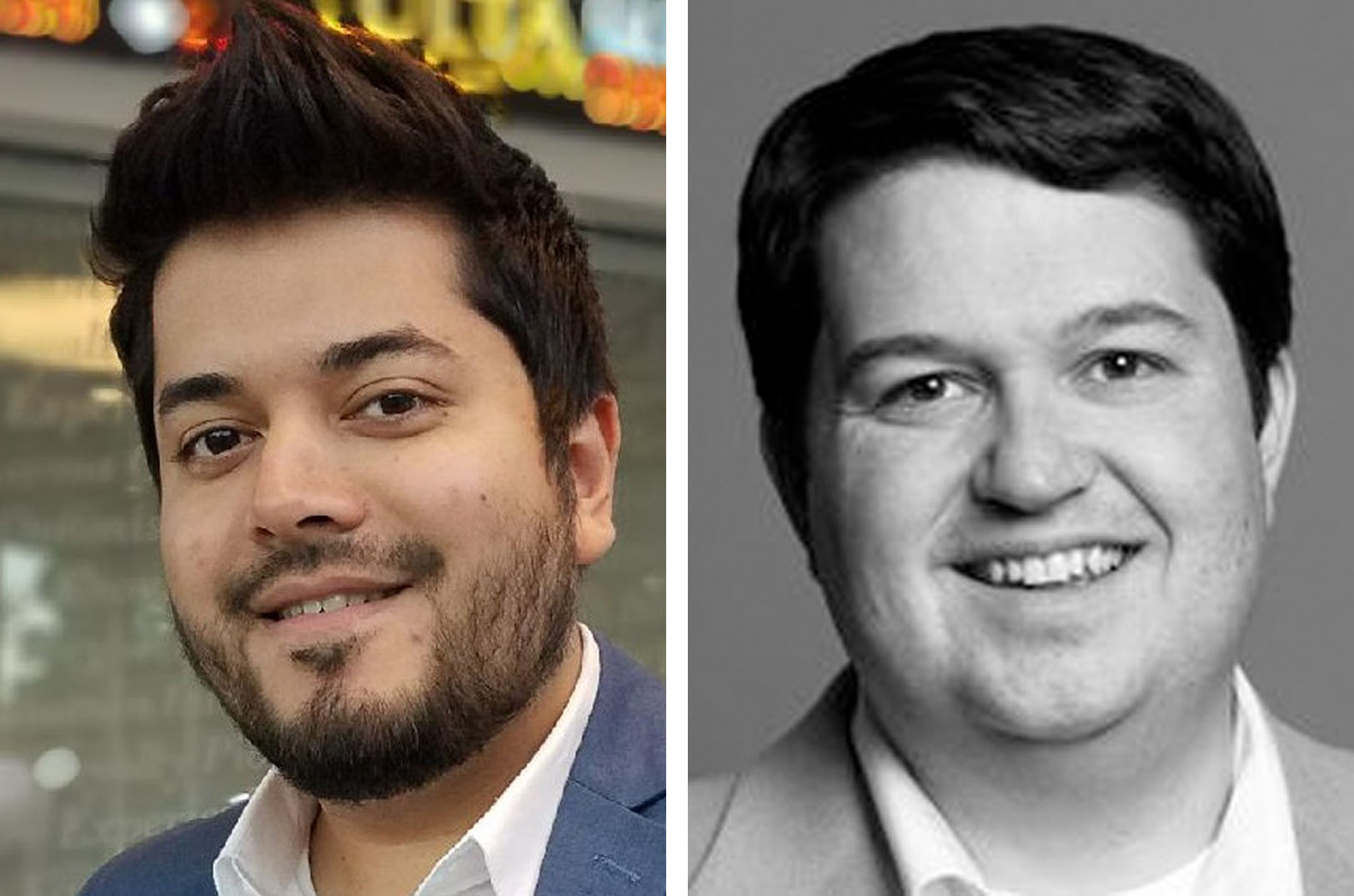When the City of Kansas City, Missouri, came looking for ways to combat climate change in 2018, Sunny Sanwar raised his hand with a solution.
“There’s a lot of extremely useful models in academia, [but they] oftentimes don’t solve for commercial viability. They’re solving to appease peers or for publishing in top journals,” said Sanwar, founder of Dynamhex.
Describing how valuable climate change research could help cities make smarter choices, he noted it can be difficult for that research to translate into actionable solutions.
“There is a latent need, for real customers and real decision makers who are non-researchers, that want to understand the same answers in a slightly different, simplified sort of real time way,” he explained of his 2018 realization as part of the city’s Innovation Partnership Program (IPP), rebranded in 2019 as InnovateKC.
Kansas-Missouri roots
Having moved to the metro area from Bangladesh to attend high school and later college at the University of Kansas, Sunny Sanwar is a serial entrepreneur who founded and, in 2018, sold Verd2GO — an energy storage venture that built smart batteries for various stationary end-use applications and mobile use-cases in advanced transportation.
He earned a PhD from the Regnier Institute for Entrepreneurship and Innovation at the University of Missouri-Kansas City in 2018, shortly before launching Dynamhex.
Sanwar served as an instructor at the UMKC Henry W. Bloch School of Management for three years before moving to Baltimore in 2019.
After combing through data and reports, Sanwar launched Dynamhex as a way to productize new and existing research, effectively building what he called, “Google maps for emissions.”
“You can pan over different neighborhoods and different buildings, you can click a business and understand what the greenhouse gas emissions are for that specific location and what [needs to be fixed],” he explained, also comparing the platform to the likes of Foursquare or Mapbox.
“If I hover over the T-Mobile Center, maybe it’s boiler upgrades or lighting retrofits. If I hover over your single family home, it [could be] roof insulation, attic insulation, on-site solar,” he continued, offering examples of how quickly the platform allows decision makers to identify problem spots and act swiftly to make eco-friendly upgrades or develop strategies to curb their effects.
“Having [one-on-one] conversations with 147 million property owners in the next eight years is just not feasible. So, we visualize it. It’s no longer out of sight, out of mind. It’s very much something you can look at, click on, and do the thing you need to do.”
Click here to learn more about Dynamhex and its mission to change how the world responds to climate change or here for details on the Biden-Harris administration’s plan to reduce greenhouse gas pollution by 2030.
Some three-years later, Sanwar has left Kansas City, now serving as an assistant professor at the University of Baltimore. But Dynamhex remains a Kansas City-operated startup, its local efforts led by advisor Patrick Hosty.
Under Sanwar’s leadership, the startup has completed the TECH Venture Studio program through the Dare to Venture Micro Grant Competition at the University of Missouri-Kansas City and the startup recently secured more than $1 million in seed funding — which included support from local investors at KCRise Fund.
“We’ve had a great response,” Sanwar said of local operations. “We’ve completed a successful fundraise, we’ve been fortunate to have many partners that want to help us grow — which is always a hard thing for startups to find.”
Weathering the valley of death
With a handful of its sales boasting local receipts, Dynamhex has found significant success in the Mid-Atlantic region — a testament to the startup’s dual operations in Baltimore and Kansas City.
Science and stigmas
“Historically, cities would be on the side of, ‘We’re not really sure of the science behind it. We’re going to wait for federal action or state action,’” Sunny Sanwar said of a common stigma climate tech startups used to run up against.
“Now, it is a reality. They’re having to worry about flooding, they’re having to do master planning resilience [work.] These are real-time things and they don’t have the luxury of saying, ‘I can wait.’”
In response to a rapidly changing world, it’s rare for a city to say no to a pitch from the team at Dynamhex, he continued.
“It’s more like, ‘We need to move in this area, this quickly,’”
Beyond climate change, the startup also offers cities a chance at making significant progress in energy conservation, Sanwar explained.
“When it comes down to energy costs or resource costs — whether or not you believe emissions cause sea level rise — you want to lower energy consumption across residential buildings, commercial buildings, transit, et cetera,” he said, noting a two-pronged problem Dynamhex is uniquely positioned to solve.
“We haven’t really come across any of the traditional government types recently [who say,] ‘We don’t believe in climate change yet,’ which is something that we saw years ago. Nowadays, it’s more like, ‘How can we be compatible with the Biden-Harris administration [and its plan to reduce greenhouse gas pollution by 2030]?”
“I think a good mix kind of streamlines the fundraising process,” Sanwar said of running the company with a two-city presence. “You’re not putting all your eggs in one region and you’re not held to that region’s pace.”
The setup has also revealed a number of unique observations about the Kansas City startup climate, the pair revealed, with Hosty noting his belief that Kansas City could be a stronger ally specifically for govtech companies.
“We’ve had success inside Kansas City, but, you know, we’re getting scale outside of Kansas City,” he admitted, citing an outward attitude of eagerness in the city toward helping companies grow and succeed, but little to no action in formally partnering with them to create regional progress and truly promote innovation.
“I think Kansas City is a good place to sell a business. As we’ve seen, most of the publicly traded companies have recently sold or had a merger. It’s a great place to return and retire your jersey. But as far as hypergrowth [companies go] there’s a lot more that can be done to be supportive of startups.”
And it’s a problem commonly acknowledged by local founders that could be contributing to Hosty’s observations, Sanwar added.
“Everyone is nice and everyone wants to cheer you on,” he said, quick to note such support isn’t a bad thing — but it isn’t the only thing startups are looking for.
“When push comes to shove, there’s that valley of death and you need to really provide tangible support, tailored to each startup and the phase they’re in. I think that’s where Kansas City could really provide [more] resources and services,” Sanwar explained, drawing on his experiences in Baltimore for contrast.
“The city … could say, ‘Hey, this is a priority for the city. We want solutions for this problem this city is facing,’” he added, noting a similar question to the one posed during his participation in the IPP program.
“A lot of people will talk in generalities, but that specific instance gets kind of overlooked. That’s where we can really get to the next level — when you have this ecosystem that understands tailoring stuff to real problems,” he continued.
“One side is like, ‘Hey, we are all about entrepreneurship.’ [That attitude] is sometimes not helpful in that second stage of a founder’s journey where they have really specific asks and [need people around them] who really understand what they’re struggling with.”
But the pair can only speak from their experience, Hosty added.
“You’re only an expert when you have a briefcase and you’re 50-miles away from your own hometown,” Hosty laughed, quoting Will Rogers, noting Dynamhex remains a committed member of the Kansas City innovation community and its eager to establish itself as a climatetech-focused force within the metro’s govtech sector — the place it got its start to begin with.
“There’s a lot [that’s happened] since our humble beginning in Kansas City’s IPP program,” he said, grateful the city took a chance on the startup.
“Immediately after [the program] we were fortunate to do a substantially similar type of pilot in Washington D.C. and with that success, we [caught the attention of] the local utility there and, more broadly, their parent company Exelon,” Hosty continued.
“They took a shot with us and we’ve had success ever since. It’s been a long journey, but when you have good technology and a sound business process, the next step is just getting folks to buy it. So that’s what we’ve been doing.”
This story is possible thanks to support from the Ewing Marion Kauffman Foundation, a private, nonpartisan foundation that seeks to build inclusive prosperity through a prepared workforce and entrepreneur-focused economic development. The Foundation works to change conditions, address root causes, and break down systemic barriers so that all people – regardless of race, gender, or geography – have the opportunity to achieve economic stability, mobility, and prosperity.
For more information, visit www.kauffman.org and connect with us at www.twitter.com/kauffmanfdn and www.facebook.com/kauffmanfdn.







































